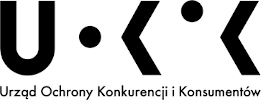Poland's UOKiK gives consent to ITI/CANAL+ satellite JV
Friday, September 14th, 2012
ITI and Canal+ will jointly set up a satellite platform. The President of UOKiK (Urząd Ochrony Konkurencji i Konsumentów) has issued two consents to implement transactions between these undertakings. Upon request of participants to the concentration, the case was referred by the European Commission for consideration of UOKiK
WARSAW — Under the law, a transaction is subject to notification to UOKiK if it involves undertakings whose total turnover in the year preceding the notification exceeded EUR 1 billion worldwide or EUR 50 mln in Poland. The European Commission also has the power to examine market effects of mergers and acquisitions – it inspects transactions where the total worldwide turnover of all participants amounts to a minimum of EUR 2.5 billion.
Whenever implementing such transaction may significantly affect the competition of a given state, the participants to concentraction of a Community dimiension may request the EC to have the effects of the transaction examined by the member state. Under such circumstances, the European Commision can refer the case to the national antimonopoly authority, which assesses the effects of a given transaction. However, undertakings rarely benefit from this privilege. In the years 1990-2011, it took place only in 67 out of nearly 5 thousand transactions notified to the European Commission. As far as Poland is concerned, this is the first request concerning taking over the case by UOKiK.
Taking into account the fact that the transaction involves only the Polish market, the case was referred to UOKiK. According to the European Commission, the Polish antimonopoly office has a significant experience in examining the tv and advertising sectors, which has reflected in decisions issued in this respect to date. UOKiK agreed to handle the case.
In connection with the notified transaction, since April 2012 UOKiK has conducted two proceedings in concentration cases. One concerned the takeover of N-Vision by Groupe Canal+, which is to be exercised jointly with ITI Holdings. The second – taking control by Groupe Canal+ and TVN Group over the entity created by merging Canal+ Cyfrowy and ITI Neovision, which will allow for joining the activity of satellite platforms.
Groupe Canal+ belongs to the international group Vivendi (Paris: VIV). It operates mainly in France, and deals with the production, distribution and marketing of tv channels and services provided by any types of media platforms. In Poland it operates under a company Canal+ Cyfrowy, providing pay tv services available via the satellite platform Cyfra+. Additionally, it is a distributor of over 100 tv and radio channels, including these broadcast by companies of Vivendi group, e.g. Canal+, Ale kino, or Mini Mini+.
TVN is a dependent undertaking of N-Vision, dealing inter alia with broadcasting general use channels and licensing the paid ones such as TVN24 and TVN Turbo. Moreover, it controls a number of companies, including ITI Neovision, the operator of satellite platform n. Both N-Vision and TVN constitute a part of ITI Holdings capital group.
Taking a joint control by Groupe Canal+ over N-Vision will take place as a result of acquiring the minority package of shares amounting to 40% and certain rights entitling to exercise joint control. As regards the second transaction, the assets of Canal+ Cyfrowy, following its transformation into a joint stock company, will be transferred to ITI Neovision for the exchange of shares in the increased initial capital.
The inspection of UOKiK revealed that concentrations will most powerfully affect the domestic markets of granting licenses to pay tv channels as well as access services to pay tv and tv commercial. However, none of these markets will experience the significant restriction of competition – participants of the transaction will have to compete with other entities. For this reason the President of the Office has given her consent to both concentrations.
In the event the concentration to which consent was issued has not been implemented within 2 years from the date of issuance, then such decision is no longer valid.
Latest News
- Barb to start reporting TV-set viewing of YouTube channels
- SAT FILM selects multi-DRM from CryptoGuard
- Qvest and ARABSAT to launch OTT streaming platform
- ArabyAds & LG Ad Solutions partner with TVekstra in Turkey
- Freeview NZ satellite TV service to move to Koreasat 6
- Comscore expands YouTube CTV measurement internationally
